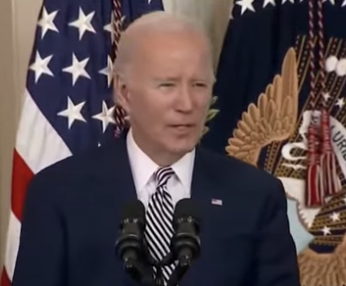News
BIG GOVERNMENT ALERT! Biden’s Latest Sneaky Move To Control Internet

The Biden administration’s recent push for “digital equity” through the Federal Communications Commission (FCC) is raising eyebrows among conservatives. While the proposal claims to combat “digital discrimination,” Commissioner Brendan Carr warns that it is nothing more than an “unlawful power grab.” This blog explores the potential pitfalls of the proposed rules, suggesting that they could grant the government unprecedented control over internet service providers (ISPs), hindering innovation and limiting consumer choices.
Commissioner Carr’s opposition to the plan centers around his belief that the government is overstepping its bounds. By seeking control over various aspects of ISPs, including pricing, discounts, marketing, credit checks, and infrastructure development, the proposal could stifle competition and innovation in the broadband market. The fear is that this heavy-handed approach may lead to a one-size-fits-all solution, discouraging ISPs from exploring new avenues and tailoring their services to meet the diverse needs of consumers.
One of the critical concerns voiced by Commissioner Carr is the potential stifling of innovation among broadband providers. Granting the government greater authority over ISPs could discourage these companies from investing in new technologies and services. As a result, consumers may find themselves with limited choices, as providers may be hesitant to take risks or differentiate themselves in a regulated environment.
Furthermore, the proposed rules could have unintended consequences on pricing and discounts. Government interference in these areas may lead to artificially low prices, discouraging ISPs from investing in infrastructure improvements or expanding their services. This, in turn, could result in subpar service quality for consumers who may end up with fewer options and lower-quality services.
The anticipated approval of these rules by the FCC is likely to spark legal challenges. Critics argue that this move follows a pattern of the Biden administration using federal agencies to impose regulations without obtaining congressional approval. This raises questions about the proper checks and balances in the policymaking process, as well as concerns about executive overreach.
Notably, the rules do not address content moderation or censorship, leaving those issues under the jurisdiction of the Department of Justice. This selective approach may further contribute to the perception that the administration is picking and choosing regulatory battles without a comprehensive and coherent strategy.
While the Biden administration’s proposal aims to promote digital equity, the concerns raised by Commissioner Carr cannot be dismissed lightly. The potential for an “unlawful power grab” that could curtail innovation and limit consumer choices warrants careful consideration. As the FCC moves forward with the vote, it is essential to balance the goal of digital equity with the need for a competitive and innovative broadband market. The anticipated legal challenges suggest that this debate is far from over and will likely continue to unfold in the coming months.






